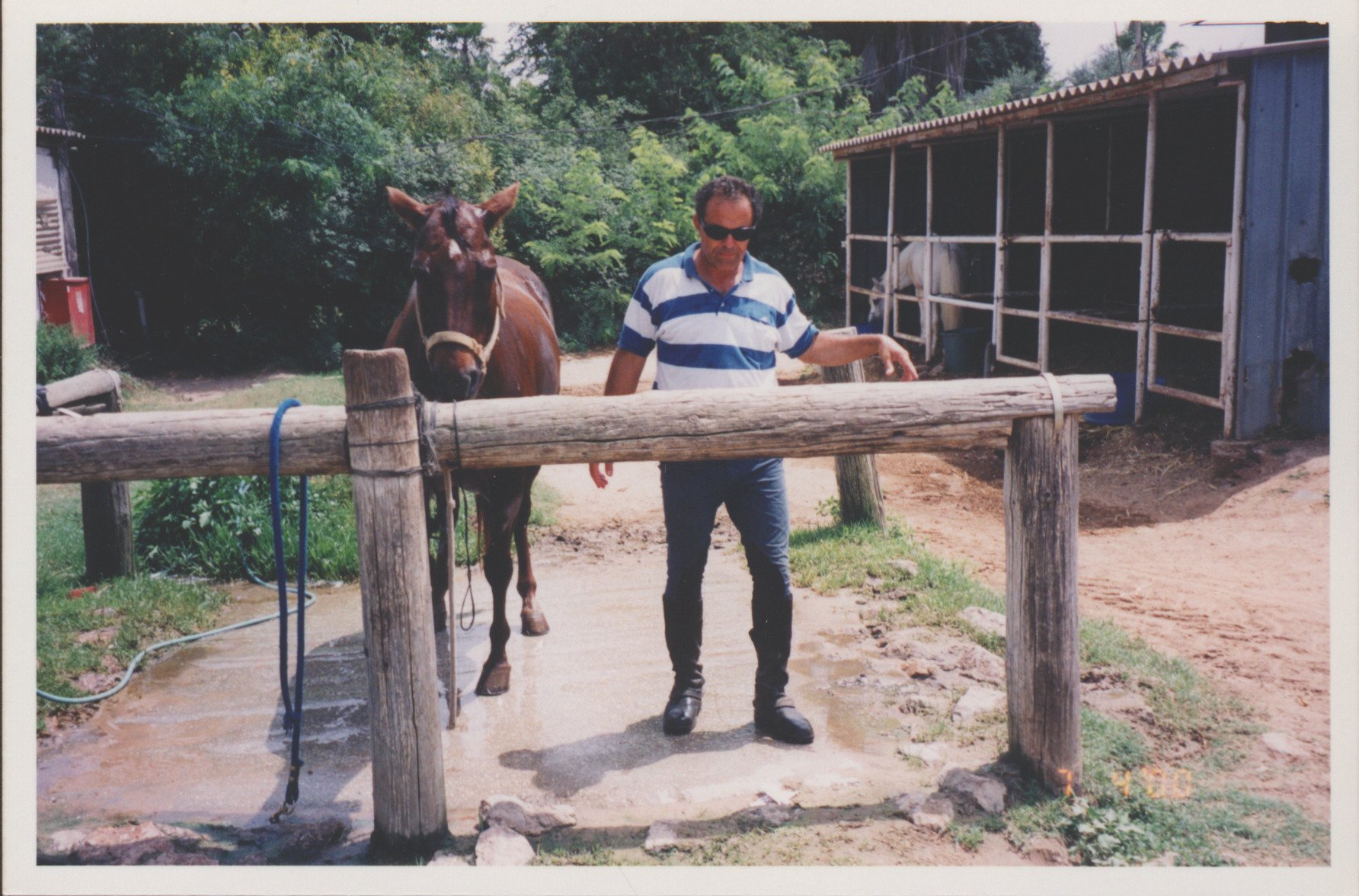A great soul has departed the world, and I’d like to share a few words to honor his memory.
My friend Giora Shkedi died at about 4:00 am on Wednesday, and the funeral—with customary Israeli speed—took place near his home in Tel Mond at 2:30 later that day.
The funeral itself was a good reflection of Giora’s Israeliness and his modesty. It also struck me that in three ways it was very Israeli, in sharp contrast to American Jewish funerals:
1. Jewish tradition encourages us to conduct funerals speedily after someone dies, an expression of כבוד המת/preserving the dignity of the deceased. Yet Giora’s funeral was a quick 9 ½ hours later on the very same day—a turnaround which would be unheard-of in American Jewish life.
2. The informality of the service was wonderfully Israeli—sweatshirts, jeans, and sneakers on many of the mourners. Israeli informality is one of the things I cherish most about their culture.
3. After the service, Giora’s body was lovingly placed into the soil of Eretz Yisrael—without a coffin, again in the Israeli style. He was returned directly to the land that he served so loyally.
Giora was a consummate Israeli kibbutznik: rugged, charming, a man of few words and deep integrity. He was also a war hero: a veteran of the Yom Kippur War. On October 11-12, 1973, he participated in a legendary and daring raid deep inside Syria under patrol command Major Shaul Mofaz. In essence, the mission was to sabotage a road leading from Iraq to Damascus, where the Iraqis had been supplying weapons and heavy artillery to the Syrians to attack Israel. As is common in war stories, the initial mission went askew, but Mofaz and his troops improvised and ultimately achieved a triumphant and strategically crucial operation for the Israelis, one that seriously hampered the Syrian assault.
Of course, I prefer to think of Giora not as a war hero, but as a Mitzvah hero.
After he married my friend Anita, her life’s work became his as well. Together they became the preeminent practitioners of therapeutic horseback riding (“equine therapy”) in Israel. First they founded the Therapeutic Riding Club of Israel, and subsequently they created INTRA-Israel’s National Therapeutic Riding Association (both organizations have now closed). If you’ve never seen therapeutic horseback riding in action, it’s important to understand how integrated it is. Physical therapy is just the beginning of the story; their work also had astonishing results on people with less-obvious sorts of disabilities: blind people, people with learning disabilities, people with emotional and anxiety-related disorders, stroke victims, and so much more… including PTSD, which is currently the field where Anita is doing all sorts of amazing work. (I highly recommend her very powerful book, Horses Heal PTSD: Walking New Paths, which is full of incredible stories of healing.)
For many years I watched Giora work with clients on horseback—children or adults, people from all walks of Israeli life, Jews and Arabs—and he would guide them with gentleness and compassion. Afterwards, he or Anita would tell miraculous stories about the healing that they brought about. It was often a variation on a theme: “See that kid playing soccer over there? The doctors said he would never walk again…” Likewise with victims of domestic abuse, or victims of terror, or wounded soldiers, or… you get the idea.
Even though Giora and Anita confronted each day the most heartbreaking stories of lives that had been shattered and broken, they (and the horses, of course!) went about their work with modesty, understatement, and gentleness. The number of lives that they repaired (including, it must be remembered, family members of their clients who were desperate for hope) is just staggering.
For me, Giora and Anita were among the very first Mitzvah heroes I ever met when I began my friendship with Danny Siegel. They became one of the very first projects we took on at the Kavod Tzedakah Collective. I resolved to spend time with them on every visit to Israel, and I was determined to bring as many tour groups as I could to visit their farms where they would do their miraculous work. For me, the sites where they did their therapy were some of the holy places of Israel.
Anita, surely, will continue to flourish as one of the world’s great experts on equine therapy, carrying on the incredible work that she started decades ago.
There is much more to say about this remarkable man; Abba, Sava, husband, and friend. Giora’s sweet and loving memory is indeed a blessing—and an inspiration to seek out Mitzvah heroes, those who quietly yet profoundly do the work of repairing broken bodies and spirits and make them whole. I was fortunate to be his friend.
